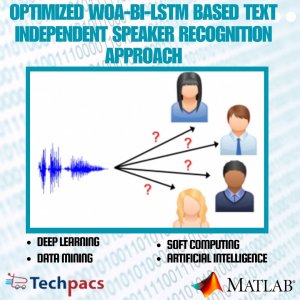YSGGA-RLE: Enhancing WSN Longevity through Cluster Head Selection and Data Compression
Problem Definition
From the analysis of literature in the domain of energy-efficient node systems, it is evident that there are significant limitations and problems that need to be addressed. The issue of effectively selecting cluster Heads (CH) in the network stands out as a major challenge faced by researchers. Many existing models lack the inclusion of necessary factors in the CH selection process, resulting in high energy consumption and decreased network lifespan. Furthermore, current algorithms used in these systems suffer from slow convergence rates and the tendency to get trapped in local minima, indicating the need for more efficient and effective methods.
Moreover, the prevailing reliance on infrastructure-based techniques for achieving energy efficiency highlights a gap in addressing the data layer.
There is a lack of options and strategies specifically aimed at reducing workload on data layers, leading to increased energy consumption and ultimately diminishing the network's overall lifespan. The need for updated measures and approaches to tackle these issues is apparent, highlighting the urgency and importance of developing more robust and energy-efficient solutions in this area of research.
Objective
The objective of this study is to address the limitations and challenges in energy-efficient node systems by proposing a model that focuses on effective Cluster Head (CH) selection and data compression in the data layer. This model aims to enhance the network lifespan by using a hybridized algorithm based on Yellow Saddle Goat fish Algorithm (YSGA) and Genetic Algorithm (GA) for CH selection, considering parameters such as average distance, delay, residual energy of nodes, and distance from the sink node. Additionally, the proposed approach incorporates the Run Encoding Length (RLE) data compression technique to reduce energy consumption and improve network lifespan. Through these methods, the study aims to develop more robust and energy-efficient solutions for wireless networks.
Proposed Work
In order to overcome the limitations of traditional models, a simple yet effective model is proposed in this paper for enhancing the network lifespan. The proposed model basically works on two stages, one effective CH selection and second data compression in data layer. As mentioned earlier, that by selecting an effective CH, the lifespan of the network can be enhanced significantly. Therefore, here, a hybridized algorithm based on Yellow Saddle Goat fish Algorithm (YSGA) and Genetic Algorithm (GA) is used for selecting the CHs in the network. The main reason for integrating the YSGA along with the GA was that YSGA has poor global searching ability that is overpowered by the searching ability of GA.
Moreover, one of the major benefits of using GA in the proposed work is that it doesn’t get stuck in the local optima and has higher convergence rate. The selection of CHs in the network is done by considering important and crucial parameters, those are; Average distance, delay, residual energy of nodes and distance from sink node to that particular node. The hybrid YSGA-GA algorithm analyze these four parameters for each node and produces fitness value. The node with best fitness is selected as the CH in the network. In addition to this, the significant element in proposed approach is that it works at the data layer, which involves data compressing before transmission to the next stage.
To achieve this objective, an improved and effective data compression technique that is called as “Run Encoding Length (RLE)” is used in the proposed work. Basically, RLE is a lossless data compression method that utilizes wide variety of bitmap file formats, including BMP, TIFF, and PCX. The working mechanism of the RLE is very simple and basic where it selects the upcoming different character and incorporates it in the encoded string as well as with the characters total number of repetitions in that string. Hence, the network lifespan of the wireless network is enhanced by incorporating the GA along with the YSGA algorithm in the proposed approach. Also, by using the RLE lossless data compression technique, the energy consumption of nodes is reduced significantly which in turn results in enhanced network lifespan.
Application Area for Industry
This project can be applied in various industrial sectors such as telecommunications, IoT, smart city infrastructure, and environmental monitoring systems. One of the key challenges that industries face is the need to reduce energy consumption and improve the lifespan of nodes in wireless networks. By implementing the proposed solutions of effective cluster head selection using the hybrid YSGA-GA algorithm and data compression using RLE at the data layer, industries can significantly enhance the network lifespan and reduce energy consumption.
The benefits of implementing these solutions include improved network efficiency, reduced energy consumption, and increased network lifespan. The hybrid YSGA-GA algorithm overcomes the limitations of traditional models by selecting cluster heads based on important parameters, leading to better network performance.
Additionally, the use of RLE data compression technique reduces the workload on data layers, further reducing energy consumption and enhancing network lifespan. By addressing the challenges identified in the literature survey, industries can achieve energy efficiency and prolong the lifespan of wireless networks across various applications.
Application Area for Academics
The proposed project can enrich academic research, education, and training by providing a new and innovative approach to enhancing wireless network lifespan and reducing energy consumption. The integration of Yellow Saddle Goat fish Algorithm (YSGA) and Genetic Algorithm (GA) for cluster head selection, along with the use of Run Encoding Length (RLE) for data compression at the data layer, presents a unique solution to existing challenges in the field. This project can open up new avenues for research in the areas of network optimization, energy efficiency, and data compression techniques.
Researchers, MTech students, and PHD scholars in the field of wireless sensor networks can utilize the code and literature of this project for their work by implementing the hybrid YSGA-GA algorithm for CH selection and incorporating RLE data compression technique in their simulations. They can explore how the proposed model can improve network performance, extend network lifespan, and reduce energy consumption in various network scenarios.
The project's relevance lies in its potential applications for enhancing network efficiency and sustainability. By addressing the limitations of traditional models and introducing novel algorithms and techniques, this project can pave the way for future research in energy-efficient wireless networks. Researchers can further build upon this work by exploring additional optimization techniques, refining algorithms, and testing the proposed approach in real-world network environments.
In conclusion, the proposed project offers a promising pathway for advancing research in wireless sensor networks through innovative methods, simulations, and data analysis. By integrating YSGA, GA, and RLE algorithms, this project can provide valuable insights into improving network performance and energy efficiency, thus contributing to the academic community's understanding of wireless network optimization.
Algorithms Used
The proposed work utilizes a hybridized algorithm based on Yellow Saddle Goat fish Algorithm (YSGA) and Genetic Algorithm (GA) for effective cluster head (CH) selection in the wireless network. YSGA's global search capability is enhanced by the superiority of GA in searching, avoiding local optima and offering a higher convergence rate. CH selection is based on key parameters such as average distance, delay, residual energy of nodes, and distance from the sink node. The node with the best fitness value is selected as the CH. Additionally, the project utilizes the Run-Length Encoding (RLE) data compression technique at the data layer to reduce energy consumption and extend network lifespan.
RLE is a lossless compression method that encodes strings with the upcoming character followed by the total number of repetitions. The integration of YSGA-GA hybrid algorithm and RLE data compression contributes to improvements in accuracy, efficiency, and network lifespan in the wireless network project.
Keywords
SEO-optimized keywords: energy-efficient network design, data encoding scheme, YSGA optimization, GA optimization, wireless sensor networks, network efficiency, energy consumption optimization, data transmission, network topology, energy-aware routing, encoding techniques, evolutionary algorithms, network performance, energy-efficient communication, network design optimization, CH selection algorithms, data compression techniques, RLE compression, network lifespan improvement.
SEO Tags
energy-efficient network design, data encoding scheme, hybrid YSGA optimization, optimization algorithms, wireless sensor networks, network efficiency, energy consumption optimization, data transmission, network topology, energy-aware routing, encoding techniques, evolutionary algorithms, network performance, energy-efficient communication, network design optimization, CH selection in wireless sensor networks, enhancing network lifespan, Run Encoding Length (RLE) data compression, YSGA and GA hybrid algorithm, reducing energy consumption in wireless networks, improving network longevity, energy-efficient data transmission techniques.
| Shipping Cost |
|
No reviews found!

















































No comments found for this product. Be the first to comment!